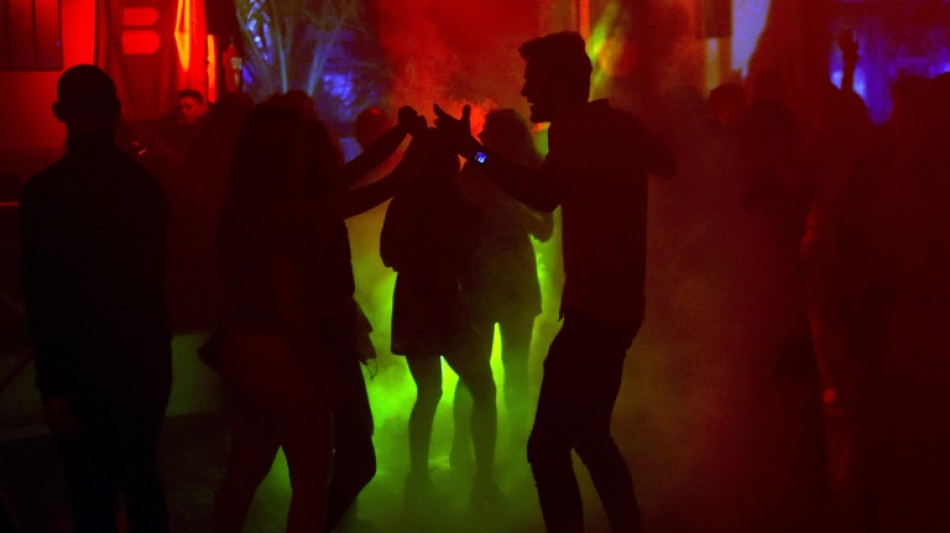
-
 Powerhouse Gyokeres can give Arsenal missing edge
Powerhouse Gyokeres can give Arsenal missing edge
-
Britain leads calls for airdrops as Gaza hunger crisis deepens

-
 Ecuador deports more than 800 Colombian inmates as Bogota cries foul
Ecuador deports more than 800 Colombian inmates as Bogota cries foul
-
Arsenal sign Swedish international Viktor Gyokeres

-
 Spain's pioneers 'knocking down walls' with run to Euro 2025 final
Spain's pioneers 'knocking down walls' with run to Euro 2025 final
-
Greece asks for EU help in battling wildfires

-
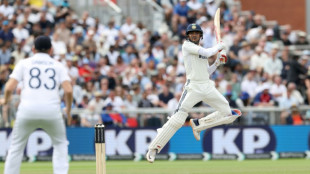 Rahul and Gill frustrate England in fourth Test after Stokes century
Rahul and Gill frustrate England in fourth Test after Stokes century
-
Norris reassured by pole after Belgian Grand Prix 'worries'
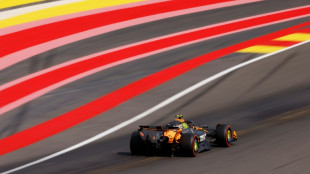
-
 England ready to meet challenge of 'fantastic' Spain in Euro 2025 final
England ready to meet challenge of 'fantastic' Spain in Euro 2025 final
-
US migrant raids spark boom for private detention providers

-
 'Make America Gay Again': Amsterdam pride gets political
'Make America Gay Again': Amsterdam pride gets political
-
Over 600 malnourished children die in six months in Nigeria: MSF

-
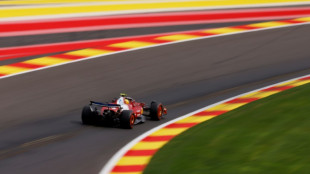 Hamilton holds hands up after 'unacceptable' qualifying
Hamilton holds hands up after 'unacceptable' qualifying
-
Norris on pole as McLaren lock-out front row at Belgian Grand Prix
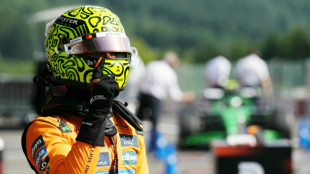
-
 Johannesburg to host first LIV Golf event in Africa
Johannesburg to host first LIV Golf event in Africa
-
Pogacar on cusp of fourth Tour title as Groves solos to stage 20 win
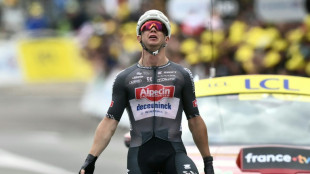
-
 Motor rally accident kills three spectators in France
Motor rally accident kills three spectators in France
-
Lando Norris claims pole for Belgian Grand Prix
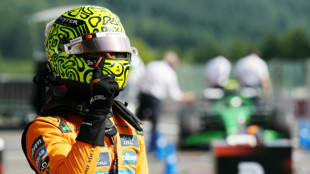
-
 'Famine', 'starvation': the challenges in defining Gaza's plight
'Famine', 'starvation': the challenges in defining Gaza's plight
-
Stokes ends two-year wait for Test hundred before Gill holds firm for India

-
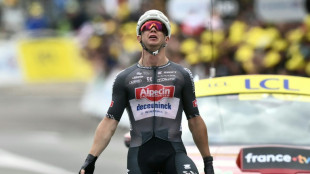 Australian Groves wins penultimate Tour stage, Pogacar in yellow
Australian Groves wins penultimate Tour stage, Pogacar in yellow
-
Root has no interest in Tendulkar run-record hype

-
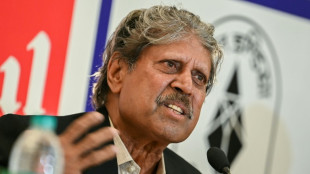 Too early to judge Gill and his young India team, says Dev
Too early to judge Gill and his young India team, says Dev
-
Liverpool beaten 4-2 by AC Milan in Hong Kong pre-season friendly

-
 NASA says it will lose about 20 percent of its workforce
NASA says it will lose about 20 percent of its workforce
-
Farrell says win over Australia 'what dreams are made of'

-
 Trump plays golf in Scotland as protesters rally
Trump plays golf in Scotland as protesters rally
-
Stokes ends two-year wait for Test hundred before India collapse in fourth Test

-
 Lions stage stunning comeback to beat Wallabies and win series
Lions stage stunning comeback to beat Wallabies and win series
-
Taiwanese voters reject attempt to recall opposition lawmakers

-
 Thai-Cambodia clashes spread along frontier as death toll rises
Thai-Cambodia clashes spread along frontier as death toll rises
-
Stokes ends two-year wait for Test hundred as England press for India series win

-
 Liverpool to remember Jota with permanent tribute
Liverpool to remember Jota with permanent tribute
-
'We are neighbours': fleeing Thais and Cambodians call for peace

-
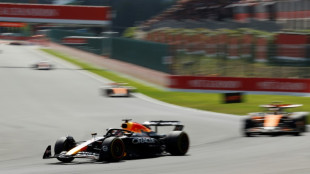 Verstappen begins new Red Bull era with Belgian sprint win
Verstappen begins new Red Bull era with Belgian sprint win
-
French left urges Macron to act over US plan to destroy contraceptives

-
 Howe confident Isak will stay at Newcastle despite transfer talk
Howe confident Isak will stay at Newcastle despite transfer talk
-
Top seed Fritz falls as Raducanu and Fernandez win at DC Open

-
 Belgian region grapples with forever chemical scandal
Belgian region grapples with forever chemical scandal
-
New-look Australia focused on LA 2028 at swimming worlds

-
 China urges global consensus on balancing AI development, security
China urges global consensus on balancing AI development, security
-
David's century sparks Aussies to T20I clincher over WIndies

-
 Death toll rises in Thai-Cambodian clashes despite ceasefire call
Death toll rises in Thai-Cambodian clashes despite ceasefire call
-
Taiwan votes in high-stakes recall election

-
 China prodigy takes on swimming world aged 12
China prodigy takes on swimming world aged 12
-
UN gathering eyes solution to deadlocked Palestinian question

-
 Polls open in Taiwan's high-stakes recall election
Polls open in Taiwan's high-stakes recall election
-
4 Steps to Budget When Living on Your Own in Lafayette, LA

-
 'Alien' lands at Comic-Con
'Alien' lands at Comic-Con
-
Top footballers afraid to speak out against playing too many games: FIFPro chief

| RBGPF | -1.52% | 73.88 | $ | |
| BCC | 1.94% | 88.14 | $ | |
| CMSC | 0.24% | 22.485 | $ | |
| NGG | -0.11% | 72.15 | $ | |
| SCS | 0.66% | 10.58 | $ | |
| SCU | 0% | 12.72 | $ | |
| RELX | -1.86% | 52.73 | $ | |
| RIO | -1.16% | 63.1 | $ | |
| JRI | -0.46% | 13.09 | $ | |
| CMSD | 0.17% | 22.89 | $ | |
| VOD | -0.79% | 11.43 | $ | |
| BCE | -0.95% | 24.2 | $ | |
| AZN | -1.4% | 72.66 | $ | |
| GSK | -0.68% | 37.97 | $ | |
| RYCEF | -0.3% | 13.2 | $ | |
| BP | 0.22% | 32.2 | $ | |
| BTI | -0.71% | 52.25 | $ |

Science confirms: to light up the dance floor, turn up the bass
Electronic music lovers know the drill: as soon as the DJ turns up the bass, the crowd goes wild and dances with heightened enthusiasm. But to what extent is this a conscious reaction?
Researchers have taken a closer look at the relationship between bass frequencies and dancing, thanks to an experiment conducted during a real-life electronic music concert.
The results, published Monday in the journal Current Biology, showed that participants danced almost 12 percent more when researchers introduced a very low frequency bass -- one that dancers could not hear.
"They couldn't tell when those changes happened, but it was driving their movements," neuroscientist David Cameron of McMaster University, who led the study, told AFP.
The results confirm the special relationship between bass and dance, which has never been scientifically proven.
- The pulse of the music -
Cameron, a trained drummer, notes that people attending electronic music concerts "love when they can feel the bass so strong" and tend to turn it up very loud.
But they are not alone.
In many cultures and traditions across the world "it tends to be the low-frequency instruments like the bass guitar or the bass drum, that give the pulse of the music" that gets humans moving.
"What we didn't know is, can you actually make people dance more with bass?" said Cameron.
The experiment took place in Canada, in a building known as LIVElab, which served both as a concert hall and a research laboratory.
About 60 out of 130 people who went to see a concert by electronic music duo Orphyx were equipped with motion-sensing headbands to monitor their dance moves.
During the concert, researchers intermittently turned very-low bass-playing speakers on and off.
A questionnaire filled out by concert-goers confirmed that the sound was undetectable. This allowed researchers to isolate the impact of the bass and avoid other factors, such as dancers reacting to a popular part of a song.
- Below the level of consciousness -
"I was impressed with the effect," said Cameron.
His theory is that even when undetected, the bass stimulates sensory systems in the body, such as the skin and the vestibular system -- more commonly known as the inner ear.
These systems have a very close connection to the motor system -- responsible for movement -- but in an intuitive way that bypasses the frontal cortex.
He compares it to the way the body keeps the lungs breathing and the heart beating.
"It is below the level of consciousness."
Cameron said the research team believes the stimulation of these systems "give a little boost to your motor system. And that adds a little bit of energy and vigor to your real-world movements."
He hopes to verify this hypothesis in future experiments.
As for why humans dance at all, the mystery endures.
"I've always been interested in rhythm, and especially what it is about rhythm that makes us want to move," in the absence of a specific function of dance.
Most theories revolve around the idea of social cohesion.
"When you synchronize with people, you tend to feel bonded with them a little bit afterward. You feel good afterwards," said Cameron.
"By making music together, that allows us to feel better together as a group, and then we function better as a group, and we can be more efficient, and we can have more peace."
Y.Aukaiv--AMWN


